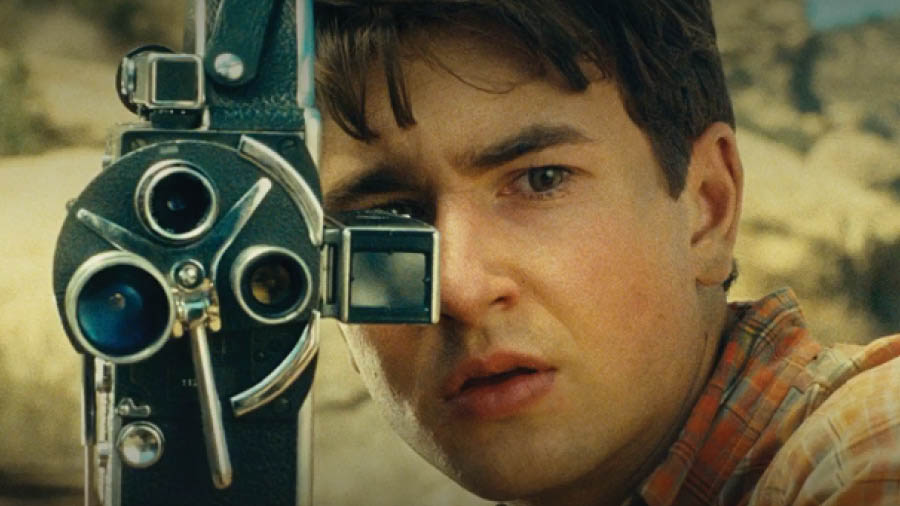The children in a Steven Spielberg film are special. They are the perspective to the extraordinary worlds the filmmaker takes us into. From the very beginning of his career, it’s through the children of his films that we explore layered themes of family disintegrating, traditional values and reunification. These being the underlying theme across his filmography makes it clear that this has to come from a very personal space.
The Fabelsmans — competing at the 95th Academy Awards with seven nominations — is all that and a lot more. It is Spielberg’s first truly autobiographical work drawing clear and direct parallels from his life. Though never explicitly said, the characters in the film are him and his family, and because of this The Fabelsman has an honesty in its making that is so heartwarming to experience.
Sam Fabelsman falls in love with the movies from an early age. And with age and maturity, he starts to slowly piece together the different variables of filmmaking. He learns them one home film at a time and before you know it, he has been able to move an auditorium full of teenagers who were just strangers to him moments before. The character version of Spielberg, just like the many children in his films before, is innocent, idealistic and ambitious: the adult among real adults around him. While the spine of the film does explore the relationship of Sam Fabelsman with his camera, the soul of The Fabelsmans lies in the family dynamic. It’s a heartbreaking tale, one that Spielberg has told in many shapes and forms in films before.
In terms of the craft of it all, The Fabelsmans may not be Spielberg’s best. Yet you look past that because there’s also a conscious decision made by the filmmaker here not to be flashy, edgy or out of the box. Co-writer Tony Kushner and his script focused more on making the film for themselves and their loyal fans. Hence the script may not be as tight as their collaborative films before. The film in a way struggles to wrap up, having about three sequences that feel like ending. In the end, though, as Sam Fabelsman reaches the end of this journey, everything seems to make sense.
Over the last two years, many filmmakers have made films that were partly, if not fully, autobiographical in nature. Sam Mendes made Empire of Light and Kenneth Branagh made Belfast, but there’s another film that is possibly closer to this: Paolo Sorrentino’s personal yet unconventionally autobiographical, The Hand of God.
In both The Fabelsmans and The Hand of God, a young boy tied to his culture and close to the family has to grow out of it for circumstances and losses beyond their control. They need to find control, meaning and answers in something else — cinema. In both the films, the protagonists are sensitive young men and we catch them at a very specific time in history. While Sorrentino's life and choices were informed by things beyond cinema, for Spielberg it was cinema itself — just that.
The performances in The Fabelsmans may feel dated in the beginning, even theatrical to some extent, but the style blends with the form of the film soon after and they seem to feel as natural as other realistic autobiographical films. Paul Dano as Fabelsman Sr. gives a heartbreaking performance, holding back so many emotions and shadowing them with a warm smile — a facade to keep the family going. There’s pain and joy in his face at the same time and that’s where his brilliance is. On the other hand, Michelle Williams acts on the edge of madness. Her performance, which encapsulates much of Spielberg’s own mother’s personality, is layered, has shades of grey and yet makes you connect and sympathise with her in a way you otherwise wouldn’t have if it was essayed by a different actor.
Perhaps the best acting in the film is by Gabriel LaBelle, who plays the young adult Sammy whose eyes do much of the heavy lifting. They are curious as much as they are sad; they are searching as much as they are seeking. LaBelle brings a degree of innocence in his performance that helps us react to the world in the film through him. We get angry at certain characters because Sammy feels so; we forgive them because Sammy forgives them. And having that responsibility as an actor isn’t an easy task. LaBelle pulls it off effortlessly, embodying both Spielberg’s children and Spielberg the child.
There was or will be no other director like Steven Spielberg. His most personal film till date is playing on the big screen. It deserves to be seen on the big screen.











